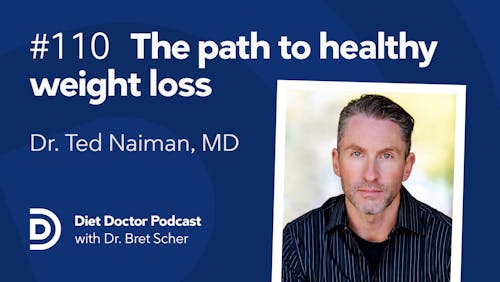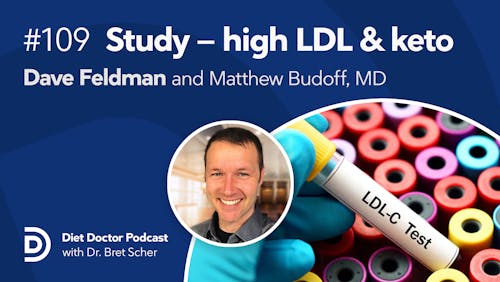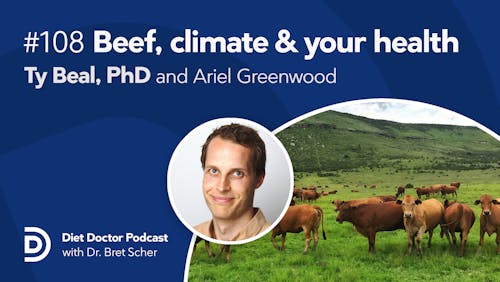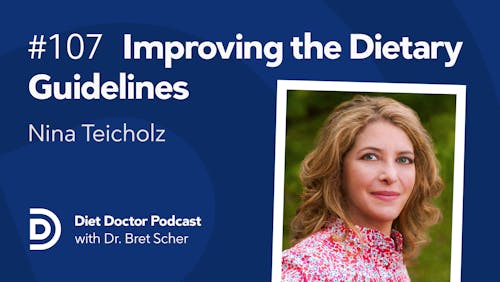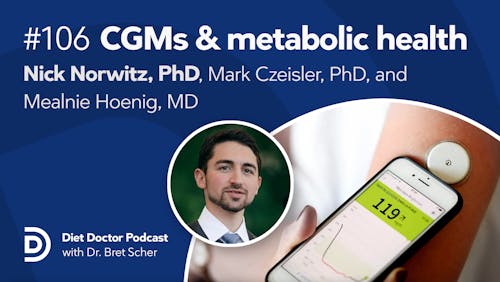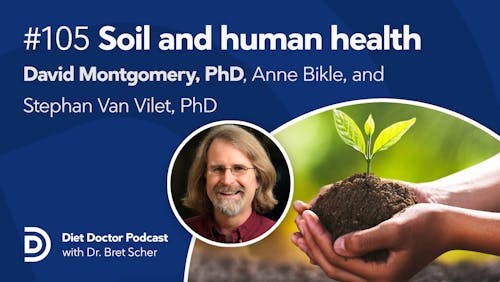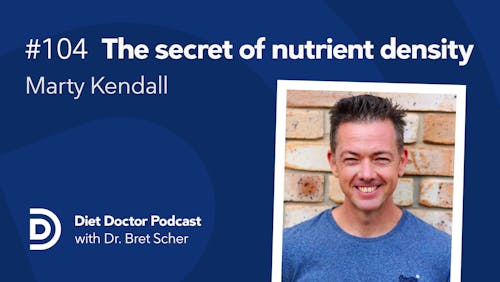Diet Doctor Podcast #56:
Dr. Ethan Weiss
338 views Add as favorite
Dr. Ethan Weiss is a preventive cardiologist who supports a low-carb and keto way of eating. That is remarkable in itself. But my admiration for him goes well beyond that simple fact. As a researcher and clinician, he’s uniquely positioned to understand how science — specifically nutritional science — informs decisions doctors can and should make with patients.
He believes we need to separate emotion from science, and has been a vocal critic of “low-carb tribalism.” Much of his concern centers around the controversy about the role LDL plays in heart disease. Could it be different for those following low-carb? Yes, he says.
But the bigger question is what do we do about it until we know for sure? I hope you appreciate his thought process and his approach to this question as much as I do.
Above it all, however, Ethan is a human playing his part to try to make the world a better place. Whether it’s volunteering to fly across the country to work in a Covid ICU, or his honesty and vulnerability surrounding his daughter with albinism, Ethan sets an example of how we should behave as human beings.
About the video
Virtual podcast recorded in August 2020, published in September 2020.
Host: Dr. Bret Scher
Producer: Hari Dewang
Table of contents
2:08 Welcome, Dr. Ethan Weiss
2:20 Being objective among the myths
5:10 Perspective on quality of nutritional research
7:00 How Ethan differs from preventive cardiologists
9:58 About people who are against low carb
13:25 What has changed during Ethan’s diet journey
16:30 How low carb fits in with patients
18:56 About the low saturated fat content
26:00 The article about low-carb tribalism
31:22 Looking at science objectively
33:13 LDL and HDL on a low-carb diet
37:45 Low HDL as a marker of high triglycerides
39:26 LDL abnormality vs all the health benefits on low carb
43:30 Four things you can do with high LDL level
49:57 Finding the missing pieces of LDL through research
55:08 Should ‘broken’ genes be fixed?
1:00:22 Where to find Dr. Ethan Weiss
Dr. Ethan Weiss is a preventive cardiologist who supports a low-carb and keto way of eating. That is remarkable in itself. But my admiration for him goes well beyond that simple fact. As a researcher and clinician, he’s uniquely positioned to understand how science — specifically nutritional science — informs decisions doctors can and should make with patients.
He believes we need to separate emotion from science, and has been a vocal critic of “low-carb tribalism.” Much of his concern centers around the controversy about the role LDL plays in heart disease. Could it be different for those following low-carb? Yes, he says.
But the bigger question is what do we do about it until we know for sure? I hope you appreciate his thought process and his approach to this question as much as I do.
Above it all, however, Ethan is a human playing his part to try to make the world a better place. Whether it’s volunteering to fly across the country to work in a Covid ICU, or his honesty and vulnerability surrounding his daughter with albinism, Ethan sets an example of how we should behave as human beings.
Transcript